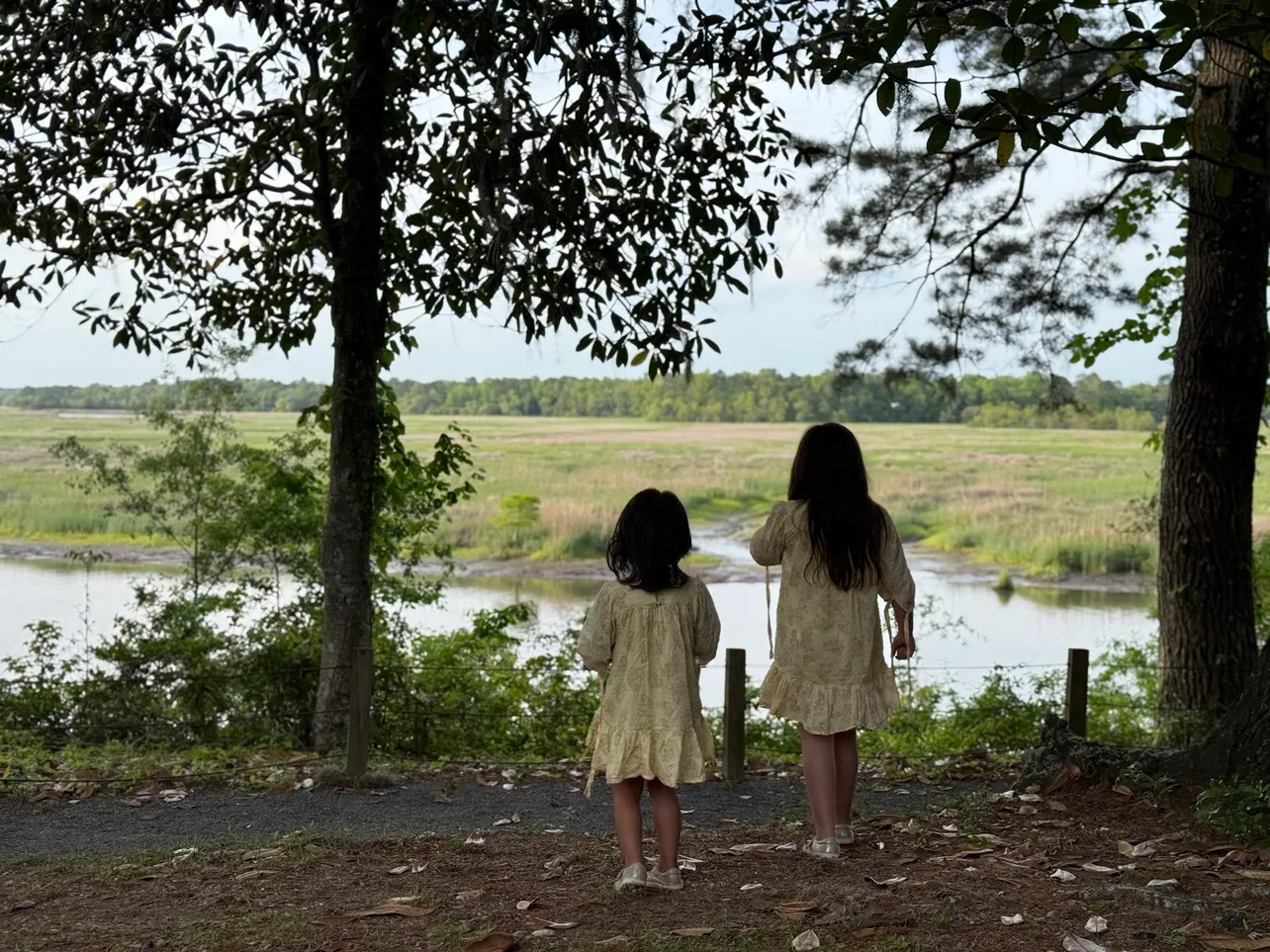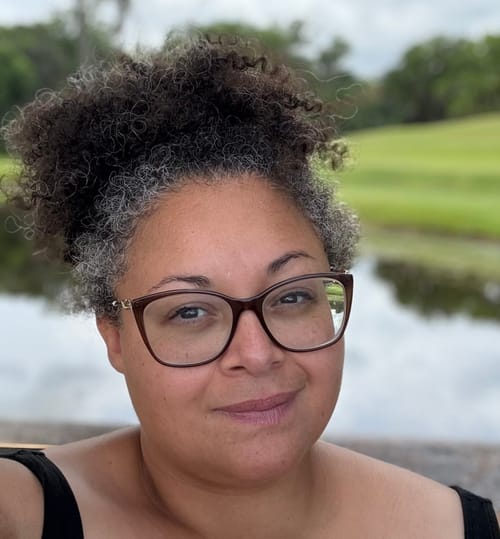It’s July, peak summer travel time, and you may be considering a trip with your kids to take their minds off the fire recovery. A change of scenery, fresh air, and a break from endless bad news seems like a good idea, right? I thought so, too. However, I learned that vacation is trauma for my kids now.
Two of my children really struggled on what I thought was going to be a joyful trip for them nearly five months after the fire. My brother was getting married; my daughters were so excited to be beautiful flower girls for their uncle and new aunt, and my family thought it would do us all some good to get away from all the ash and despair. The girls told every person they saw at the airport and on the plane how overjoyed they were, and I was so sure that this trip was going to be a wonderful distraction for them. Yet at around 10pm, on our first night in the hotel, the screams started—first from my four-year-old and then soon after from my seven-year-old.
My four-year-old sobbed inconsolably through most of the night, worried that “the lava” was destroying our town again, and that “[her] people” weren’t safe. She was also very worried that she would lose her toys again. I cradled her like a baby in my jet-lagged arms. My seven-year-old, though a little more capable of explaining her fears, was not able to talk through the heavy sobs wracking her body. She eventually said that waking up in the strange hotel felt like the night of January 7 all over again. When I brought this up with a therapist, I was told that this was not unusual or unexpected, and that of course being in a new hotel again would take them back to that night and the month of hotel-hopping thereafter before we could begin our recovery work. Months later, just being in a hotel, even one in a completely different state, in a completely different circumstance, still triggered the terror of the fire.
My eldest has been working with a therapist over the last month to unpack why the trip was so scary, and she was finally able to tell me that “staying in the hotel felt like our fire vacation again.” She had never called the evacuation “fire vacation” before; no wonder she couldn’t separate real vacation from evacuation. Then I remembered the well-meaning person who tried to soothe her when we got to safety that night: “think of this like just a vacation. It will all be over soon and then you’ll be able to go home like nothing happened!” I’m sure many frightened children heard the same words. Kids are always listening, especially in the most stressful moments, and she did exactly as that person had advised her. Now vacation is terror.
If you are a parent who has been trying to explain to other adults how the fire has impacted your little ones, someone has invariably hushed you and told you not to worry, for children are so resilient. This hackneyed response seems to suggest a belief that children possess some inherent, preternatural ability to just roll with the punches and carry on without any ill effects from any number of stresses or misfortunes. It’s so obviously incorrect— haven’t they been down the self-help book aisle and seen the bevy of books on childhood trauma?
There is no magic quality of resilience inherent in a child, and it isn’t built through simply surviving major traumas. In fact, we have so much scientific evidence to the contrary as we have come to understand the lifelong developmental effects of adverse childhood experiences (ACEs). Our former Surgeon General of California, Nadine Burke Harris, was instrumental in bringing public attention to the long-lasting physiological harm from childhood trauma and toxic stress and honed in on the trauma responses to natural disasters. As more information about ACEs enters the public conversation, parents will less often have to contend with the dismissive “children are so resilient” crowd and instead find the social support they need to help their children not encode fire trauma within their DNA, leading to a lifetime of toxic trauma physiology, from altered brain development to immune, hormonal, and metabolic dysfunction.
For many children, the fire wasn’t just one singular ACE either.
- They may have seen the fire burning firsthand and feared whether they might die
- Some lost family or friends in the fire or had parents who were injured that harrowing night
- Some were only briefly evacuated, while others have been through multiple moves and faced housing insecurity, whether their homes burned, suffered damage, or were abruptly sold
- They may have lost their schools
- They’ve witnessed heightened parental stress, experienced extreme financial stress, and may be living with food insecurity
It is hard to figure out where one ACE ends and another begins, and so many parents are worried that this horrible onslaught of fire trauma is a ticking time bomb of lasting physiological harm for our kids.
The glimmers of joy still shine through in our children. People like to see those glimmers and say, “ah yes, the resilience of children,” and call it a day. They don’t see the many trauma responses in children. Panic attacks, night terrors, insomnia, and academic and behavioral issues are common. Very young children are experiencing regressions such as loss of potty training or separation anxiety. Some children fear the outdoors, or run away when they feel a breeze. Even children who were just briefly evacuated, without witnessing the fire or suffering any fire losses, are struggling with trauma responses and post-traumatic stress disorder (PTSD).
A therapist who has been offering pro-bono services to families in our neighborhood after the fire said that we are only just seeing the beginning of children’s trauma responses from the fire. Like so many other families here, we are now navigating child PTSD diagnoses, learning how this may continue to show up, and trying to better prepare for triggers.
Resilience builds through practice with small, manageable stressors. We’ve learned now to practice vacation before attempting it again, and we have set a goal for a brief weekend vacation this summer that is close, familiar, and less high-stakes. With a therapist, we are working on untangling “fire vacation” from true vacation, and redefining vacation as a planned, happy, stay away from home— like what the concept of vacation used to be before the fire. We have a safety mantra that we practice together. We work on every trauma response as it comes up, have amassed a collection of self-regulation tools, and keep doing the hard work of therapy.
This trauma will be with our children for a long time to come, and parents have the difficult task of rebuilding more than just housing. We all lost so much to the fire, and each day, we all have to confront more of what was lost for our children. We don’t have to do it alone, though. There is help, and I’ve listed some community resources below that would be great to utilize this summer whether you are preparing for a trip or just trying to restore stability.
Local Children’s Mental Health Services:
- Young and Healthy Pasadena and The Center for Connection: offering six free sessions of Family Play-Based Therapy
- Foothill Family: offering 10 free therapy sessions and other mental health and family support
- YMCA: offering access to free mental health services, support networks, and wraparound services through their personalized fire relief program.
- AlterCareLine: free trauma-informed therapy services
- AMJAK Therapy Center: offering two free bono sessions and free parent and child support groups
- Directory of Pro Bono Wildfire Therapy: list of pro bono therapy services, compiled by Nicole Arzt
Disclaimer: The content shared in our blog is for informational purposes only and should not be considered legal, medical, or financial advice. Please consult with a qualified professional for guidance specific to your situation.

